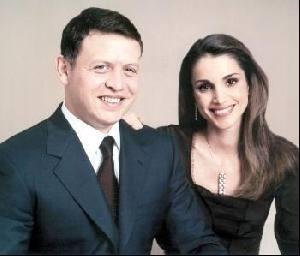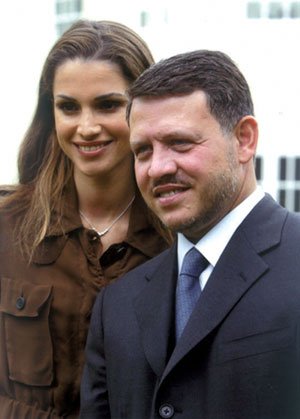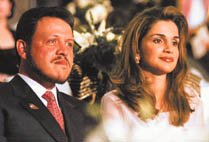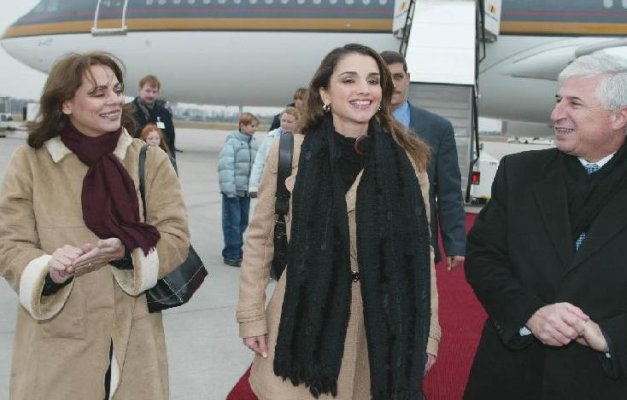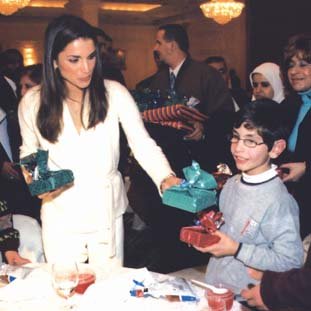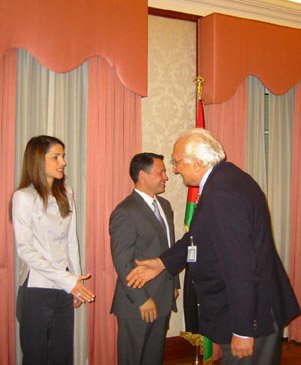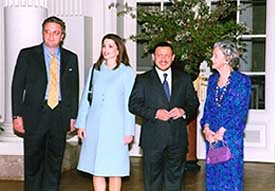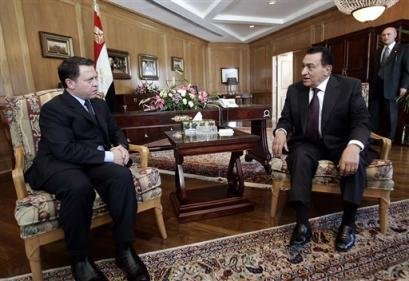I come across the article down, which summaries KA recent' speech ...
May I missing something or KA exagerated when he spoke about Jordan success, democratie and arabs knocking on his door to learn
 In S.F., Jordan's king calls for compromise
In S.F., Jordan's king calls for compromise
[font=geneva,arial]
- Janine DeFao, Chronicle Staff Writer
[/font][font=geneva,arial][size=-2]Sunday, December 12, 2004
[/size][/font]
Jordan's King Abdullah II said Saturday that the Middle East is at a critical juncture on the path toward peace and stability.
"The next few critical months will set the course and speed of progress in my region for a long time to come. A promising but extremely tough journey has begun," Abdullah told a crowd of 500 gathered at San Francisco's Fairmont Hotel at a speech sponsored by the Commonwealth Club and the World Affairs Council.
Abdullah, who was in Washington, D.C., on Monday to meet with President Bush to seek support for Palestinian independence, never mentioned in his speech the death last month of Yasser Arafat.
But he said upcoming Palestinian elections could be a crucial milestone in addressing the Israeli-Palestinian conflict.
"It is time to move seriously toward the two-state solution, which is the basis for lasting peace. That calls for action and compromise on both sides," said Abdullah, who said it is important to get the so-called "road map" back on track.
But in answer to a question, Abdullah expressed concerns about how much of the West Bank would be included in a Palestinian state.
"If we no longer have a viable Palestinian state on the ground, physically, that means there may not be peace between the Israelis and Palestinians," necessary for Israel to normalize relations with the rest of the Arab world, he said.
"We do have this small window," he said. "If we don't do it, I think the Middle East will be doomed, unfortunately, to many more decades of violence."
Abdullah also addressed the elections in neighboring Iraq scheduled for Jan. 30. While he said he supports elections as soon as possible, he stressed the importance of the minority Sunni population participating, because the winners will write the country's new constitution.
Without sufficient Sunni participation, Abdullah suggested that a national committee or national referendum help draft the constitution.
Abdullah, who succeeded his father, King Hussein, after his death in 1999, has attempted to follow the late king's role as a moderator in the Arab region. Last month, Abdullah issued a religious tract condemning Islamic extremism and showing the basis in the Quran for moderation, tolerance and peace.
Saturday, he stressed the importance of addressing the economic needs of the growing number of young people in Jordan and the Middle East -- where half the population is under 18 -- though he did not specifically mention that those disenfranchised youths are increasingly feeding the ranks of Muslim extremists.
"We have a remarkable possibility in the Middle East. If we get it right, 50 percent of this young Arab population can be such a positive impact," he said. "If you don't cater to these young people with aspirations, then you can have a time bomb."
Abdullah said he has made efforts to democratize his own country -- though critics have called the actions halfhearted -- improved the economy by becoming the first Arab nation to sign a free-trade area agreement with the United States,
and revamped the education system to make it one of the best in the world.
"A lot of Arab countries are knocking on our door. They want to know why we're so successful, and copy," he said. "We're the tip of the spear. ... If we falter, it is an excuse for all the radicals and extremists to say, 'Let's not open our society.' "
http://www.sfgate.com/cgi-bin/article.cgi?file=/c/a/2004/12/12/MNGGHAAQ3L1.DTL